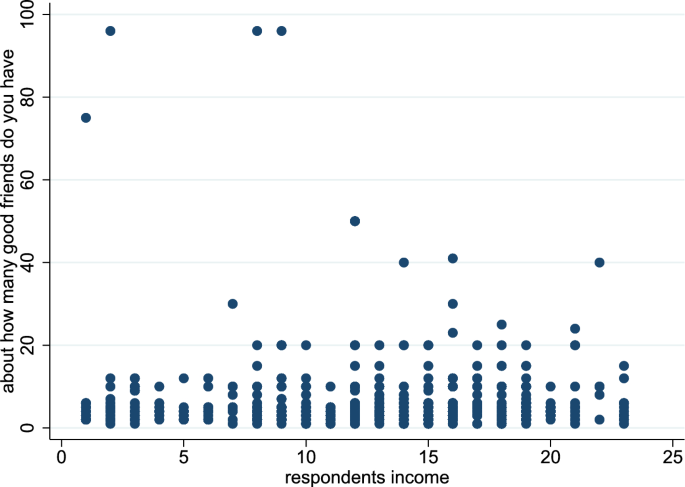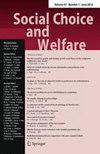技术进步、社会分裂和福利
IF 0.8
4区 经济学
Q4 ECONOMICS
引用次数: 0
摘要
摘要本文建立了技术进步导致的社会分裂的福利后果模型。我们从一个前提出发,即技术进步主要发生在市场交易的商品上,而不是亲社会关系上,因为后者本质上需要花费时间,因此不太容易受到生产率提高的影响。由于亲社会关系要求个人认同其社会群体中的其他人,而可销售的商品通常是社会地位比较的对象,因此在群体内隶属关系和群体间地位比较之间产生了权衡。因此,人们缩小了社会群体的范围,减少了亲社会关系,扩大了寻求地位的活动。由于亲社会关系产生正外部性,而追求地位的活动产生负偏好外部性,技术进步可能导致社会福利与物质繁荣的一种特殊类型的“脱钩”。一旦地位商品在总生产中的份额超过了一个关键阈值,技术进步就会显示出减少福利的作用。本文章由计算机程序翻译,如有差异,请以英文原文为准。

Technological advance, social fragmentation and welfare
Abstract This paper models the welfare consequences of social fragmentation arising from technological advance. We start from the premise that technological progress falls primarily on market-traded commodities rather than prosocial relationships, since the latter intrinsically require the expenditure of time and thus are less amenable to productivity increases. Since prosocial relationships require individuals to identify with others in their social group whereas marketable commodities are commonly the objects of social status comparisons, a tradeoff arises between in-group affiliation and inter-group status comparisons. People consequently narrow the bounds of their social groups, reducing their prosocial relationships and extending their status-seeking activities. As prosocial relationships generate positive externalities whereas status-seeking activities generate negative preference externalities, technological advance may lead to a particular type of “decoupling” of social welfare from material prosperity. Once the share of status goods in total production exceeds a crucial threshold, technological advance is shown to be welfare-reducing.
求助全文
通过发布文献求助,成功后即可免费获取论文全文。
去求助
来源期刊

Social Choice and Welfare
Multiple-
CiteScore
1.60
自引率
11.10%
发文量
56
期刊介绍:
Social Choice and Welfare explores all aspects, both normative and positive, of welfare economics, collective choice, and strategic interaction. Topics include but are not limited to: preference aggregation, welfare criteria, fairness, justice and equity, rights, inequality and poverty measurement, voting and elections, political games, coalition formation, public goods, mechanism design, networks, matching, optimal taxation, cost-benefit analysis, computational social choice, judgement aggregation, market design, behavioral welfare economics, subjective well-being studies and experimental investigations related to social choice and voting. As such, the journal is inter-disciplinary and cuts across the boundaries of economics, political science, philosophy, and mathematics. Articles on choice and order theory that include results that can be applied to the above topics are also included in the journal. While it emphasizes theory, the journal also publishes empirical work in the subject area reflecting cross-fertilizing between theoretical and empirical research. Readers will find original research articles, surveys, and book reviews.Officially cited as: Soc Choice Welf
 求助内容:
求助内容: 应助结果提醒方式:
应助结果提醒方式:


